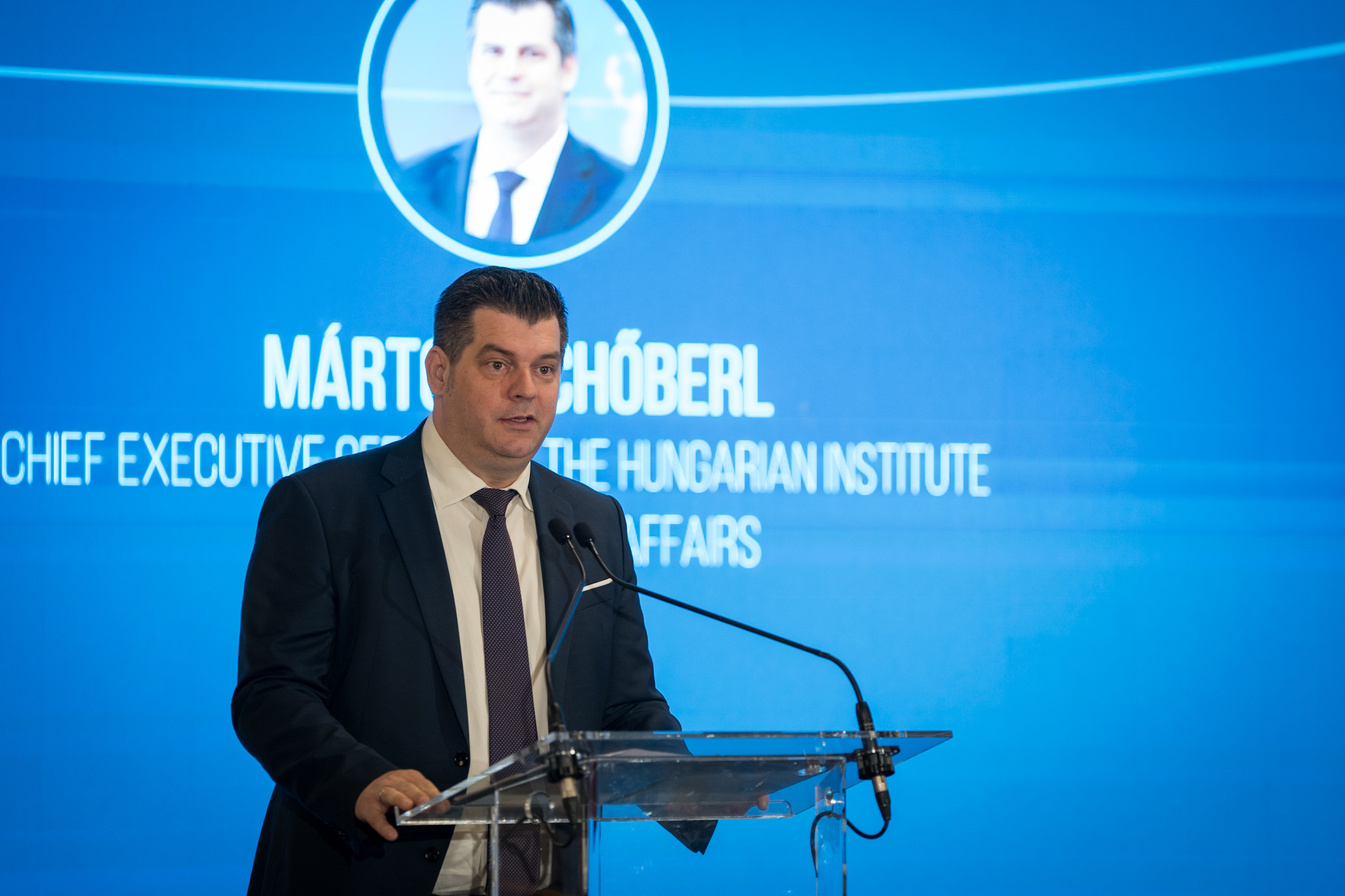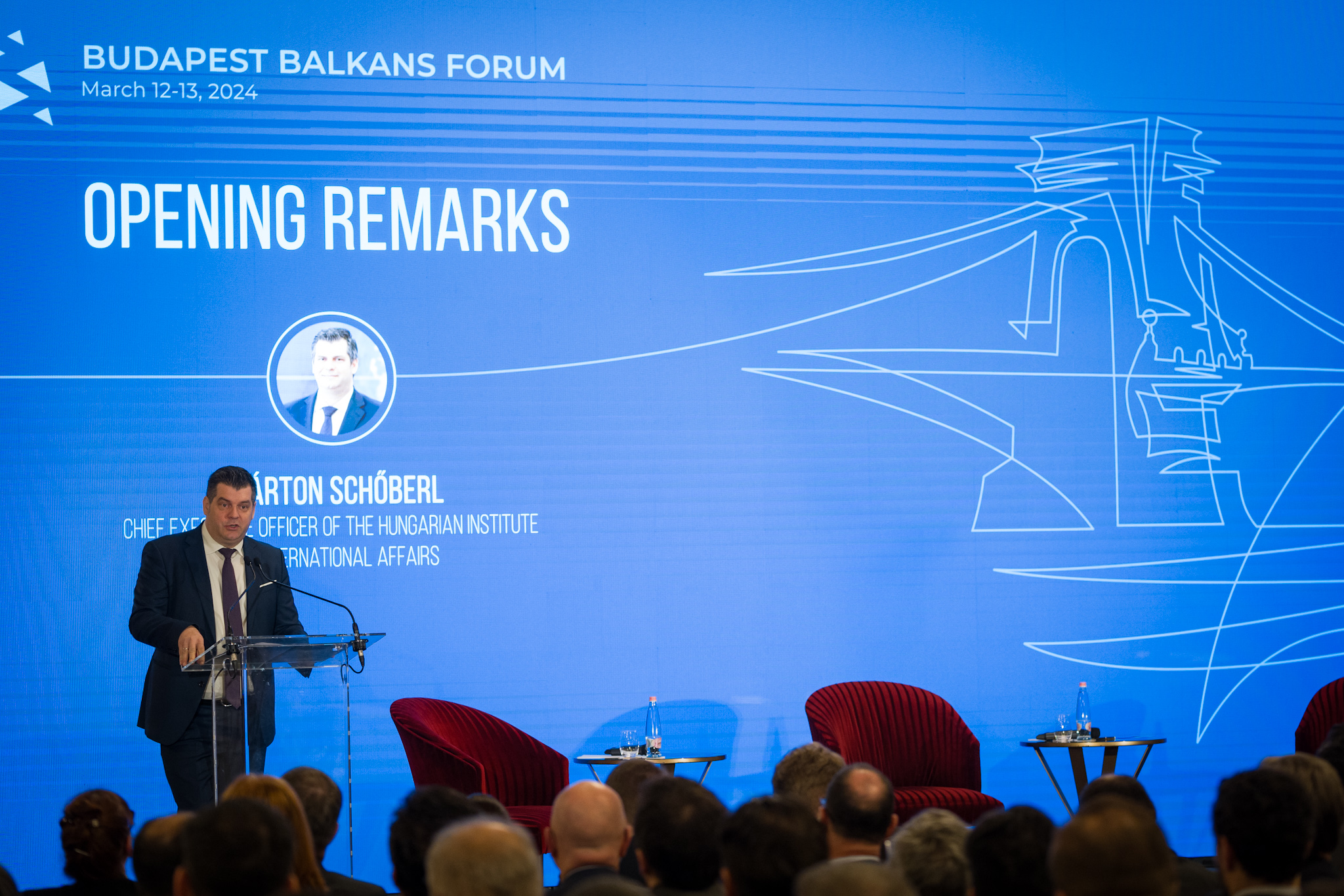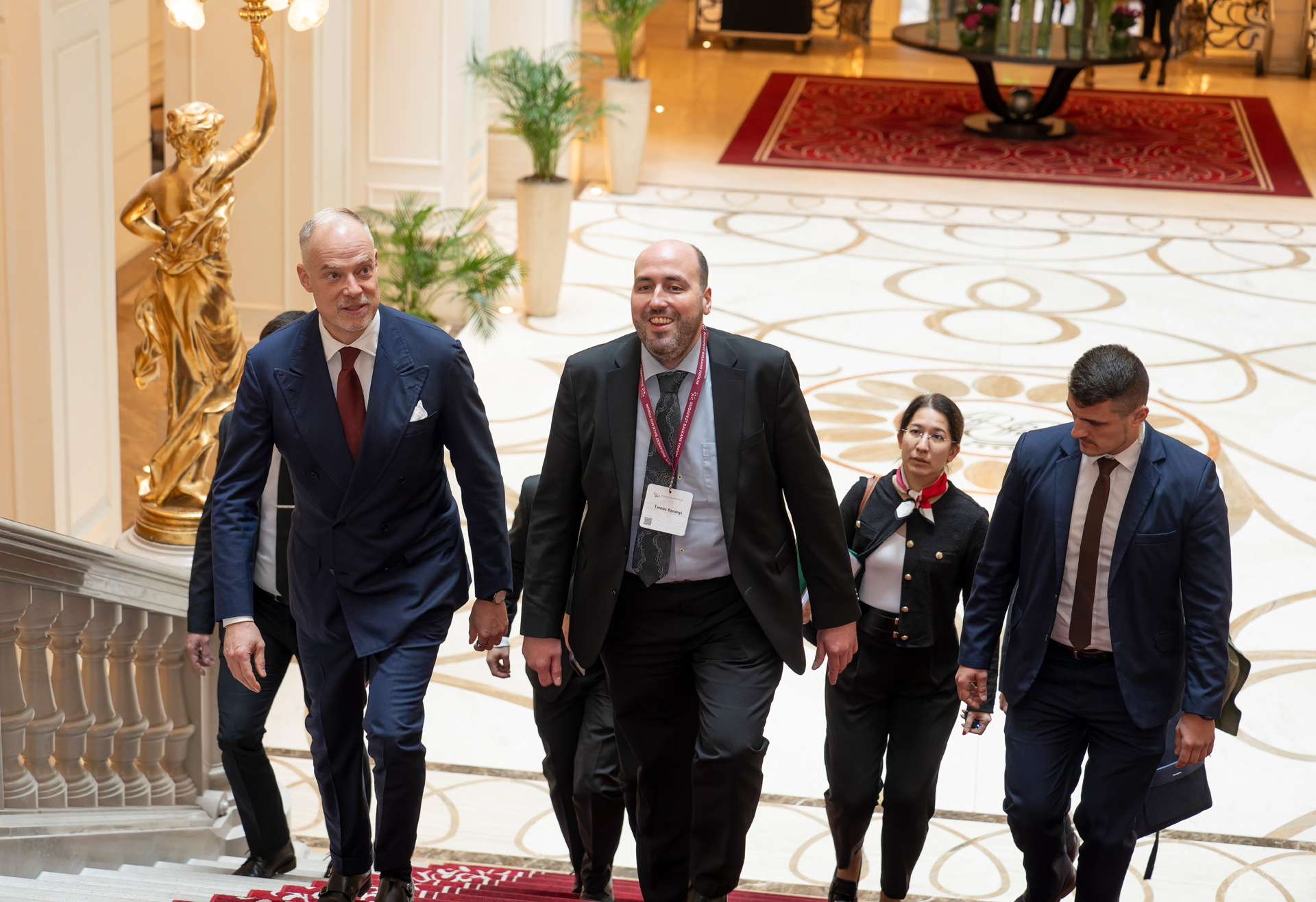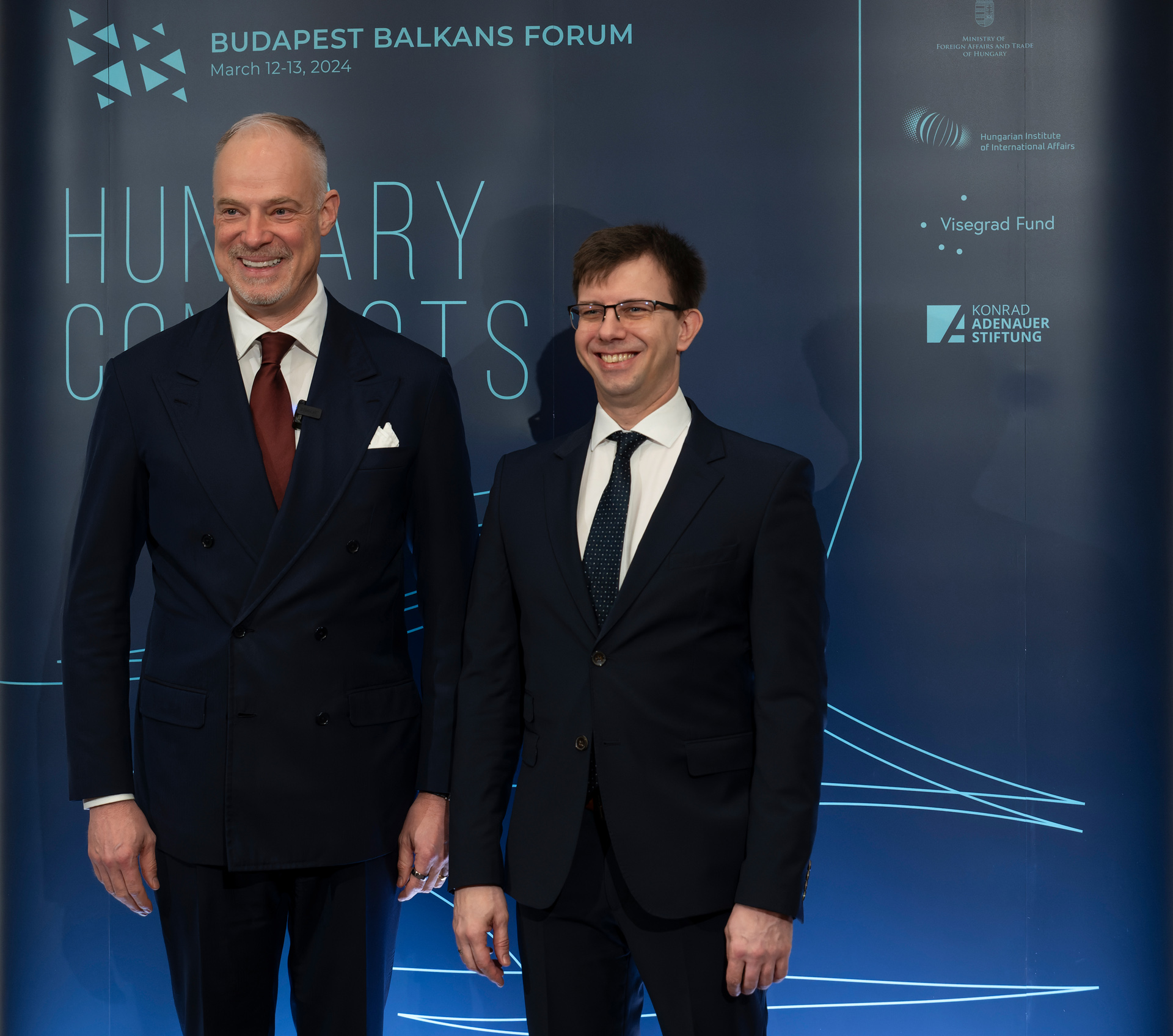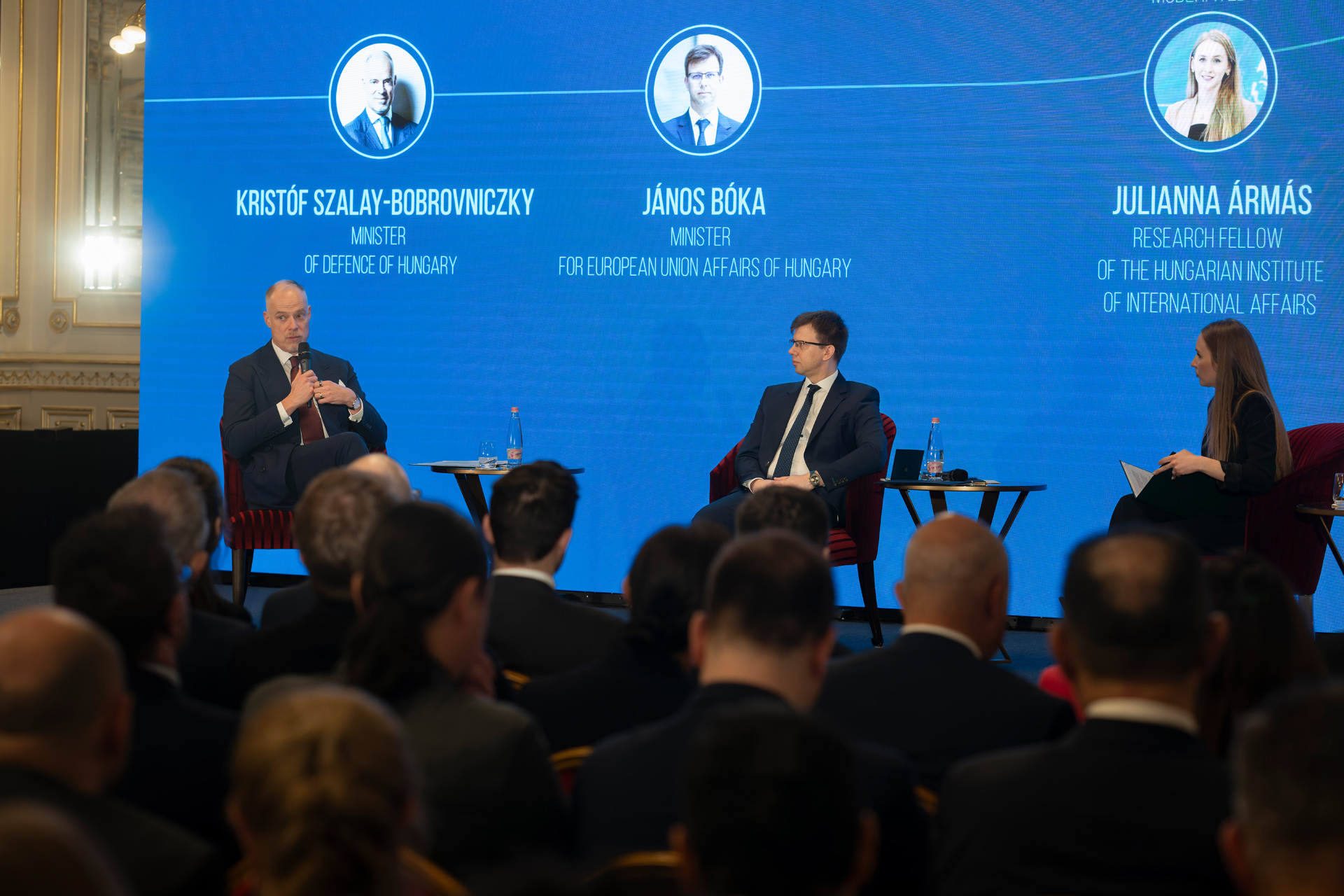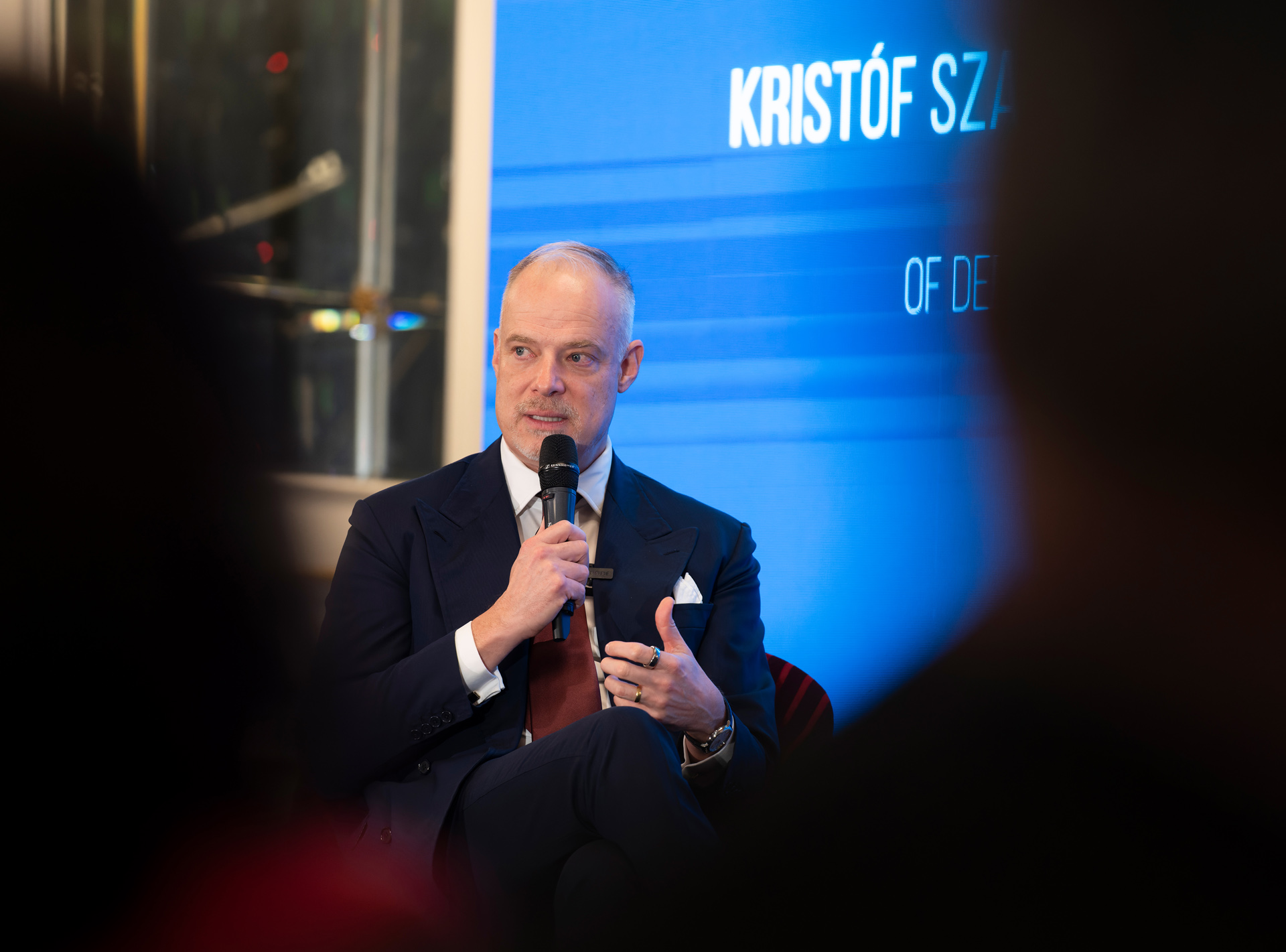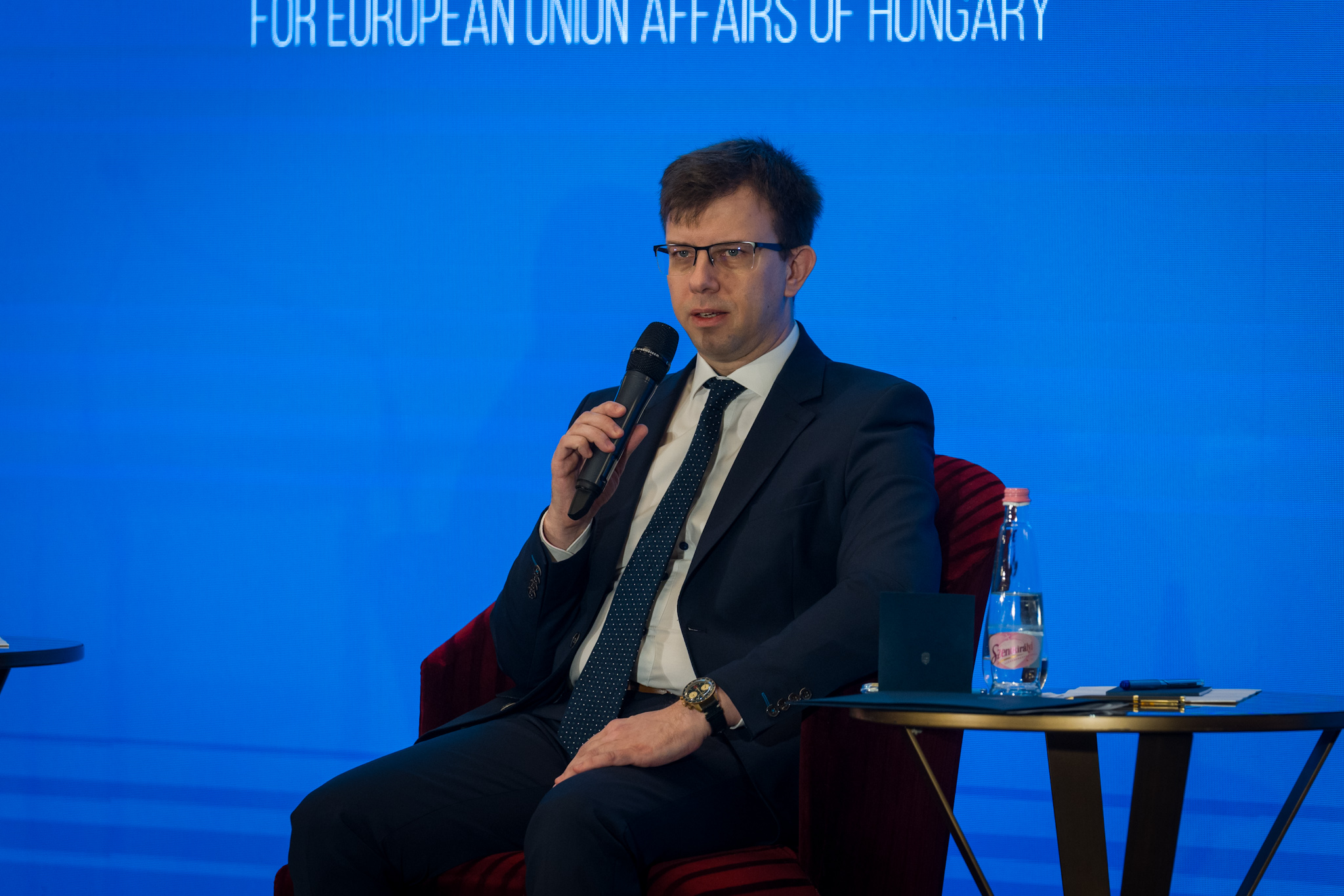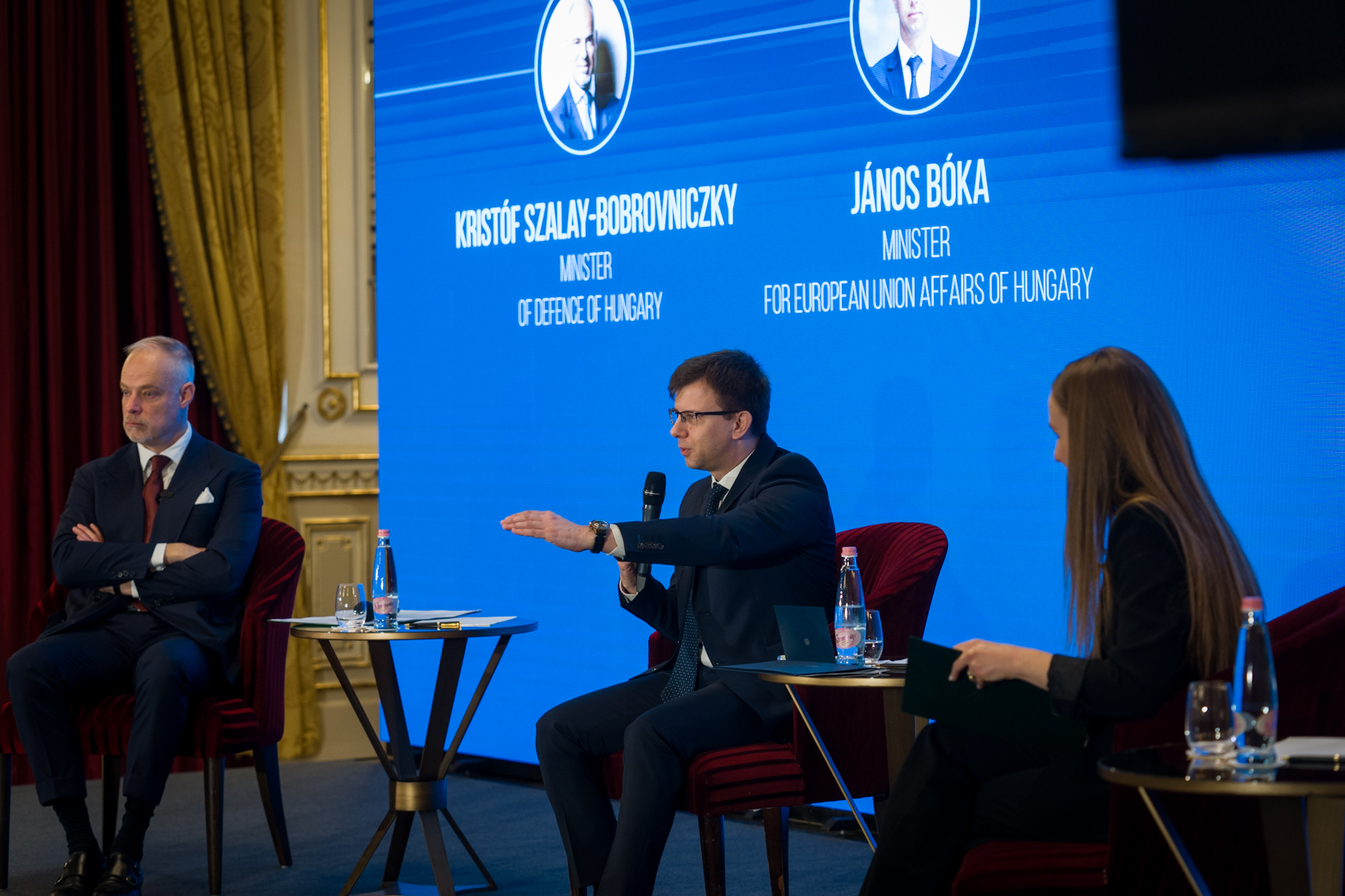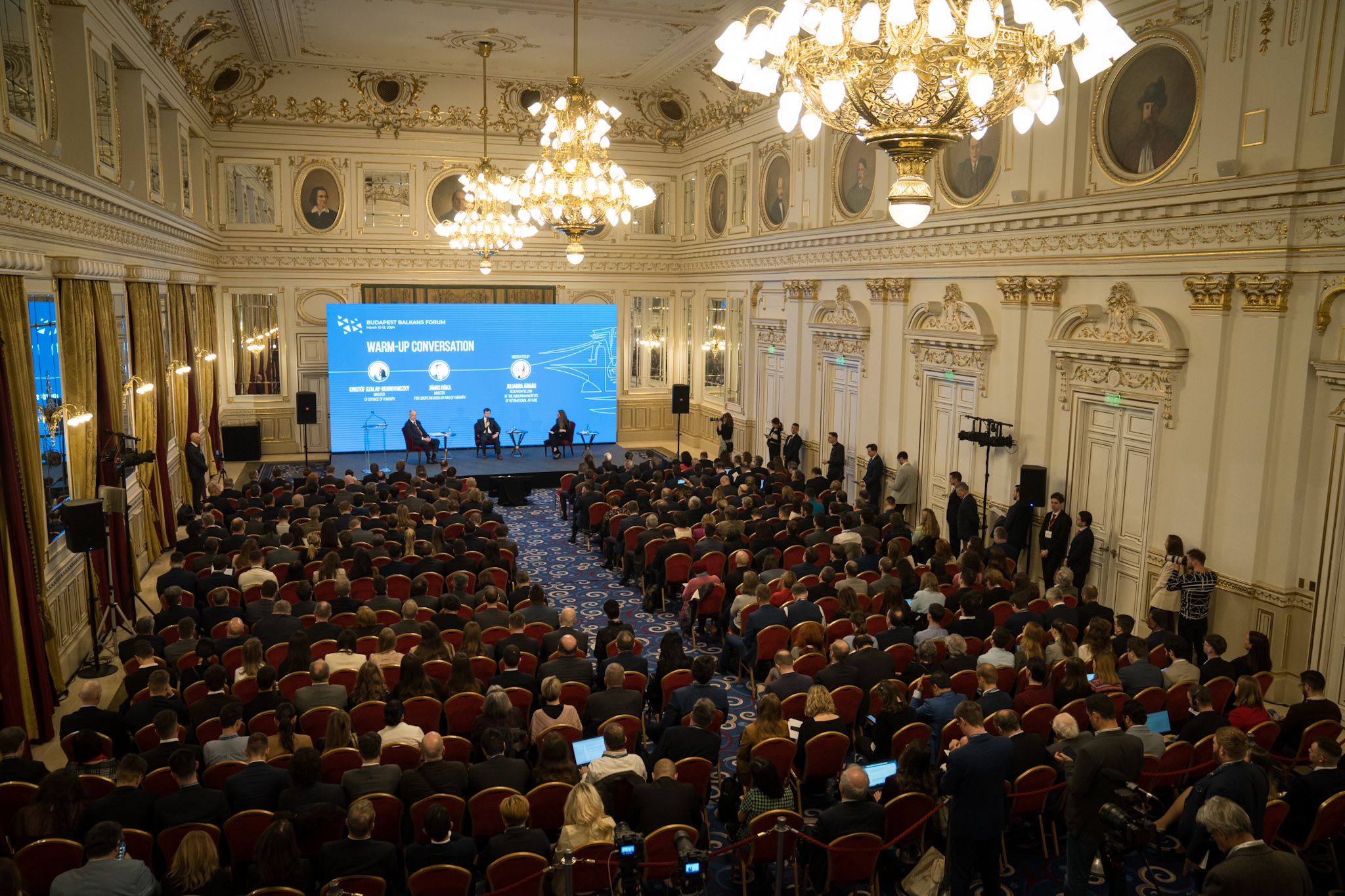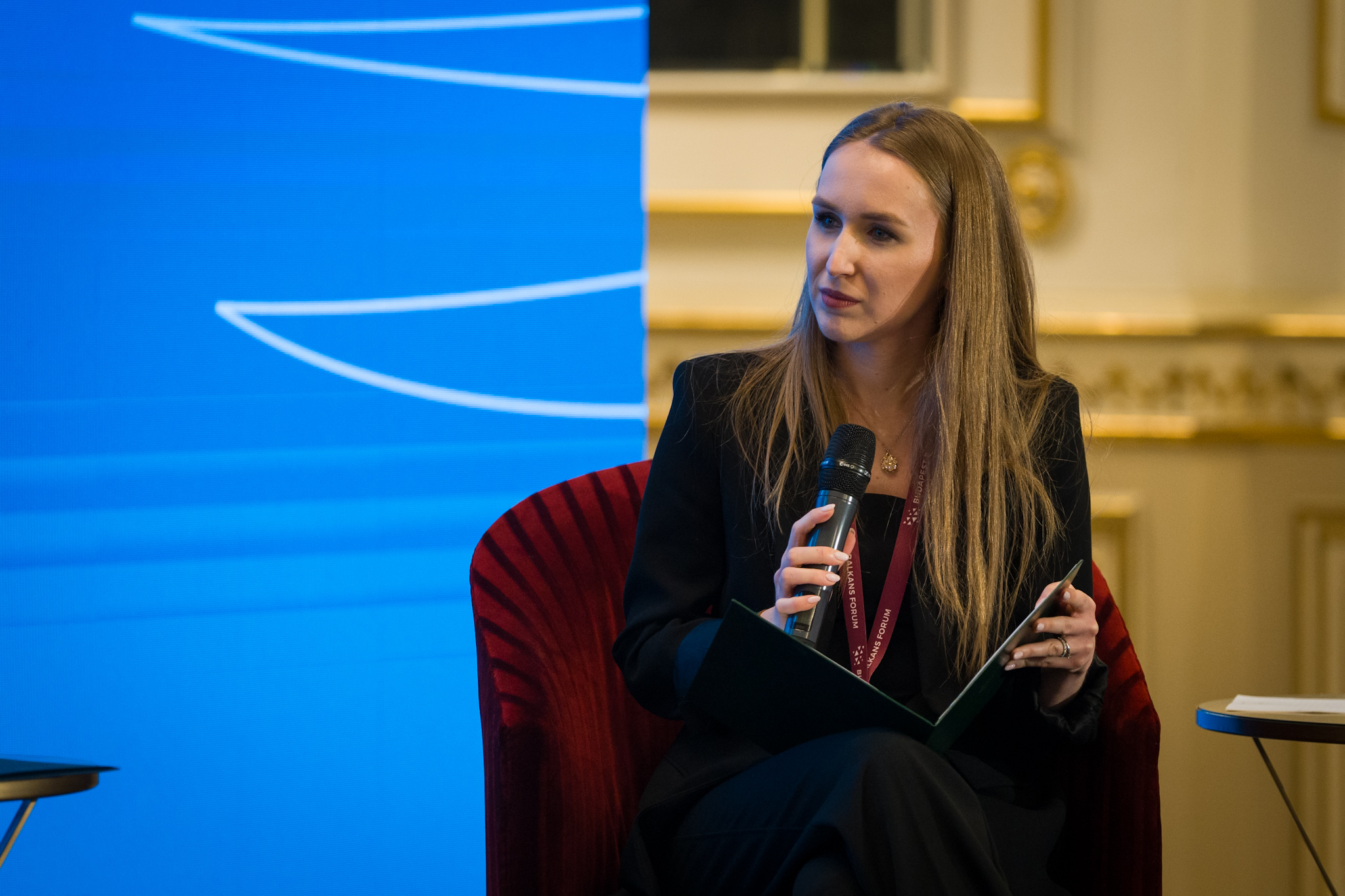Warm-up Conversation with János Bóka and Kristóf Szalay-Bobrovniczky
The Budapest Balkans Forum, the flagship conference of the Hungarian Institute of International Affairs (HIIA), started with a Warm-up conversation, which aimed to provide insight into the two most important policy areas of Hungarian–Western Balkan relations through a discussion between János Bóka, Minister for European Union Affairs of Hungary and Kristóf Szalay-Bobrovniczky, Minister of Defence of Hungary. Julianna Ármás, Research Fellow of HIIA, moderated the panel, and as an introduction discussed the importance of the Balkan region, its security and stability issues and growing economic potential.
Minister of Defence of Hungary, Kristóf Szalay-Bobrovniczky underlined that the Western Balkans is historically important for Hungary and due to its geographical proximity, the security of the region is a national interest. Today, Hungary’s goal is to stabilise the challenging situation of the region in terms of security policy. In addition to developing diplomatic and cultural relations, Hungary is taking steps to improve the security situation in the Western Balkans through our resources and experience in multilateral fora such as NATO and the EU, namely in the NATO KFOR and EUFOR Althea missions.
According to the Minister for European Union Affairs of Hungary, János Bóka, the EU should pay more attention to the Western Balkans, for which Hungary has long demonstrated unwavering dedication. Our country believes that the Balkans have always been part of Europe, which is supported by historical, cultural, and economic facts, and this confirms the Hungarian proactive and supportive attitude toward the EU enlargement. Hungary is helping the countries of the Western Balkans to join the EU, emphasising the importance of cooperation between nations. The strengthening of Hungarian–Serbian relations through the presence of the Hungarian minority in Serbia is a very positive example of cooperation between the two nations. The Minister added: another important point in the relations between Hungary and the Balkan countries is the common protection of borders and energy security. Concluding his summary of the relevance of the region, Minister Bóka noted that the Western Balkans have a significant labour pool, which also represents the untapped economic potential of the region.
Referring to Hungary’s role in the Western Balkans, the Minister of Defence emphasized that Hungary’s presence in Kosovo had helped to prevent armed clashes in one of NATO’s largest operations. The aim is also to curb the escalation of conflicts in the region. In the Western Balkans, the military is seen as a balancing factor, so the contributing nations’ presence is important, even if there are no specific crisis episodes. The goal of both missions deployed to the region – NATO KFOR and EUFOR Althea – is to ensure that military forces are no longer used in preventing international conflicts. The EU’s military presence in Bosnia and Herzegovina is justified by the even more sensitive nature of the situation there, where the coexistence of three constituent peoples makes the situation complex. The increased military presence is reflected in the 260 Hungarian units available in the country.
János Bóka, Minister for European Union Affairs of Hungary highlighted that one of the priorities of Hungary’s Presidency of the Council of the European Union (from July this year) will be enlargement, within this priority we aim to focus on the Western Balkans’ EU integration process. This is justified by the reason that these countries have been promised more than 20 years to join the EU, but so far, they have not received as much political attention as they deserve. To strengthen the enlargement policy, a Western Balkans Summit is planned to be held during the Hungarian Presidency, but not in the EU, but rather in the Western Balkans. Hungary aims to strengthen the EU’s political commitment to the region, including cyber security, energy policy, the importance of developing bilateral relations or providing any other technical support.
According to Minister Szalay-Bobrovniczky, the current security challenges are leading to an increasingly dangerous world, in which security risks and destabilisation in Hungary’s neighbourhood are growing at the regional level. The Russian–Ukrainian war, which is an open wound in the body of Europe, forces political actors to interpret the security situation and challenges in a global context. This is also essential for our country, as our geographical proximity to the war zone determines our position. Hungary is therefore on the side of peace to prevent further escalation of the conflict and calls on the international community to be cautious about sending NATO troops to Ukraine. The Minister of Defence added: there seems to be no real military solution to the situation, as the military actions of the Russian–Ukrainian war have in many cases not turned out as expected. The war is also resulting in increased illegal migration waves as well.
In a profound statement, the Hungarian Minister for European Union Affairs, János Bóka, underscored a critical observation regarding the concept of gradual integration. He articulated that a palpable discrepancy had emerged, as the nations of the Western Balkans expressed a resolute desire for full membership rather than a prolonged stint in a mere waiting room of uncertainty. Bóka stressed the importance of fostering mutual trust between the European Union and the Western Balkans to materialize these coveted accessions, a pivotal effort that stands to benefit both the EU and the region as a whole.
The discussion highlighted the strategic importance of the Western Balkans for Hungary, and the Ministers stressed that the main framework for Hungarian–Western Balkan relations remains the EU enlargement process. Moreover, the region is important from a geopolitical point of view as it is in a key strategic position. The Warm-up conversation aimed to prepare the ministerial roundtable on energy policy and security, which is one of the most important issues concerning Central and Southeast Europe with the pivotal role of the Western Balkans.

